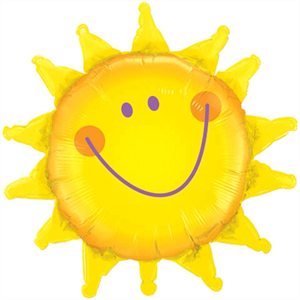
Sun
(n)Some other companies that make CPUs are ARM, IBM, and Sun Microsystems.
View moreThe Aztecs adopted human sacrifice from earlier cultures (such as the Olmecs) because they believed the universe would come to an end and the sun would cease to move without human blood.
View moreIts orbital period around the Sun of 87.97 days is the shortest of all the planets in the Solar System.
View moreBecause Mercury was the fastest planet as it moved around the Sun, it is named after the Roman deity Mercury, the messenger of the gods.
View moreIt cannot be easily seen as it is usually too close to the Sun.
View moreBecause Mercury is normally lost in the glare of the Sun (except during a solar eclipse), Mercury can only be seen in the morning or evening twilight.
View moreMars is the fourth planet from the Sun and the second smallest planet in the Solar System after Mercury.
View moreThe seasons are extreme because its elliptical (oval-shaped) orbital path around the Sun is more elongated than most other planets in the solar system.
View moreIt is the fifth planet from the Sun.
View moreIt gives off more heat than it gets from the sun.
View moreSaturn is the sixth planet from the Sun in the Solar System.
View moreSaturn is about 1,400,000,000 km (869,000,000 mi) from the Sun.
View moreSaturn takes 29.6 years on Earth to revolve around the Sun.
View moreBlack tear shaped streaks on the face help to reflect the sun when hunting.
View moreRome was built on Sun Hill, later named Palatine.
View moreVenus is the second planet from the sun.
View moreAll the carbon dioxide in the atmosphere acts like a blanket, trapping heat from the Sun.
View moreNeptune ,is the eighth and last planet from the Sun in the Solar System.
View moreReptiles are cold blooded animals that raise their body temperature by lying in the sun or lower it by crawling into the shade.
View moreAfter Bingham returned to Machu Picchu in 1912 and started excavating the site, he made the suggestion that it was used as a sanctuary for Virgins of the Sun, of the Inca religion.
View moreOf all the structures are unearthed and identified to date, the most impressive and of seemingly greatest importance, as well as being the most fabled is the Temple of the Sun.
View moreThe temple, otherwise known as Sacred Rock was used as a site for paying tribute and giving offerings to the sun, from what little we can gather.
View moreThey often cover themselves in mud to protect their skin from the sun and insects.
View moreThe Sun is the star at the center of our Solar System.
View moreMercury is the closest planet to the Sun.
View moreVenus is the hottest planet, even though Mercury is closer to the Sun.
View moreNeptune is the farthest planet from the Sun.
View moreDid you know that Mercury is the closest planet to the Sun?
View moreBecause it's so close, Mercury orbits the Sun faster than any other planet.
View moreSo, the next time you look at the night sky, think about how Mercury is zooming around the Sun, full of surprises!
View moreMars is the fourth planet from the Sun and the second smallest in the Solar System.
View moreOur solar system is a big family with the Sun as its head.
View moreThe Sun is so big that it can fit 1.3 million Earths inside it!
View moreNeptune is the farthest planet from the Sun and has strong winds.
View moreIt is also the closest planet to the Sun.
View moreIt takes only 88 Earth days for Mercury to go around the Sun.
View moreMercury is hard to see from Earth because it is close to the Sun.
View moreMars is the fourth planet from the Sun.
View more